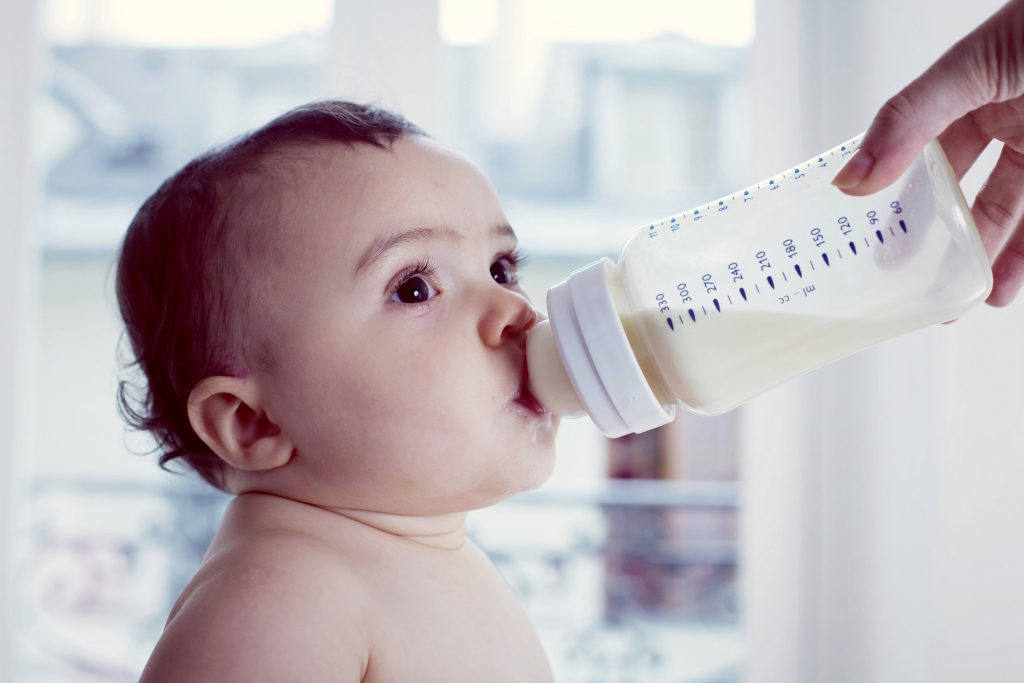The baby formula may look like a mysterious potion of magic. It can be a wonderful potion leading to a joyful baby or a black magic braw that brings stress and anxiety into your home, but it all depends on how you tolerate your baby.
Despite all the formulation mysteries, all baby formulas follow one basic formula. Begin with fat, protein, and carbohydrates, and then add mineral vitamins and extras in much smaller amounts, like probiotics. Different types of formula end up being very different because they use various protein, fat, and carbohydrate sources.
Here we will focus on carbs and talk about the various kinds of carbs in the baby formula that you should look for or even avoid:
Formula Sugar
Sugar is a carbohydrate — and that is why there is sugar in Alula baby-formula — because they are easy to digest carbohydrates. And, as you can understand, it is very crucial to make carbohydrates easy to digest in the infant formula because a newborn’s intestines are not sufficiently grown to manage many complicated carbs and fibres.
Lactose
It is not as frightening as it looks to see loads of infant formula sugar in the beginning.
Much of the carbohydrate included in breast milk (and cow milk) is lactose, consisting of 1 glucose and one galactose. This is the kind of carbohydrate that human newborns are meant to ingest. Digesting is easy. It helps beneficial bacteria to grow in the intestines of babies and does not increase the sugar level of blood than other carbohydrates.
Sucrose
Another infant sugar you will encounter in the baby formula is sucrose. This is the chemical name for table sugar; like the white thing that gets inserted into your coffee and biscuits. Sucrose is 1 glucose and 1 fructose. There is a 65 glycaemic index (higher than lactose). It is also the sweetest sugar, with a relative sweetness of 100 in any baby formula.
Corn Syrup And Corn Syrup Solids
The next popular kind of sugar is corn syrup or corn syrup solids. All corn sugars consist of a lot of glucose. The corn syrup is manufactured from maize starch that has been divided a little into short chains or single glucoses. The relative sweetness score can range between 23-40, depending on how much the corn starch is broken down, more than lactose but less than sucrose.
Maltodextrin
Corn maltodextrin is another popular kind of corn sugar. Maltodextrin consists of longer glucose chains. Actually, the corn maltodextrin would become corn syrup if it broke down a bit further; that is the difference! This indicates that maize maltodextrin is a bit sweeter than corn syrup.
It has a relative sweetness score of 6-21. But although maltodextrin’s glucose chains are longer than the glucose chains in corn syrup, all glucose is still glucose; hence both corn syrup and maltodextrin’s glycaemic index is 100.
Some baby formula firms have wised up that parents do not like to see “corn syrup” on the formula label of their baby; thus, they have started using the word “glucose syrup.” It is the same thing! It is possible to remove the syrup from a sweet plant other than maize — yet it is still a processed clump of glucose. Do not be fooled!
Starch
Starch is the final type of carbohydrate you can find in spit-up formulas. It is usually starch of rice. That will not be the primary carbohydrate source, but these specialty formulas add starch to thicken the formula, so that the baby spits it less.
Sensitive/Smooth Child Formulas
What if your infant does not seem to tolerate typical formula? The remedy appears to be sensitive or gentle formulas. Almost majority of the tolerance formulas don’t use lactose, but rely on replacements like Sucrose, corn syrup solids, Maltodextrin, etc.
The purpose of replaced lactose with a less palatable sugar is to make non-lactose sugars easier to digest if your kid is lactose-intolerant. The actual incidence of lactose intolerance is relatively low in babies, though. Remember, even healthy kids like gas, screaming, spit-up, fussiness, constipation occur. If you have concerns about the way your baby tolerates a formula, talk to your child’s paediatrician. If everything is well, consider using a lactose-only formula to imitate better what is contained in breast milk.
Reasons Why There Is Sugar In The Baby Formula
- They give a source of easy-to-digest carbohydrates.
- Corn-based sugar is cheap.
- Some sugars such as maltodextrin are also a good thickening.
- All non-lactose sugars are sweeter than lactose; thus, your child will accept the formula more likely immediately.
- In the case of partially hydrolysed formulae, some corn-based sugar is frequently added because the hydrolysing process adds a foul odour and taste to the baby formula. In sweet sugar, this flavour evolves and helps the formula taste more like breast milk.
Why Does Sugar Matter?
The quality and quantity of sugars taken by newborns and children have been demonstrated to influence their metabolism, food preferences, and sweet energy consumption later in life.
While there have been very little researches on how commonly used alternative sugars, such as corn syrup or sugar, impact children’s health, countless medical studies have linked the consumption of high sugars and high fructose corn syrup with behavioural disorders, anxiety, sleeplessness in older children, as well as rising rates of childhood obesity and diabetes.








